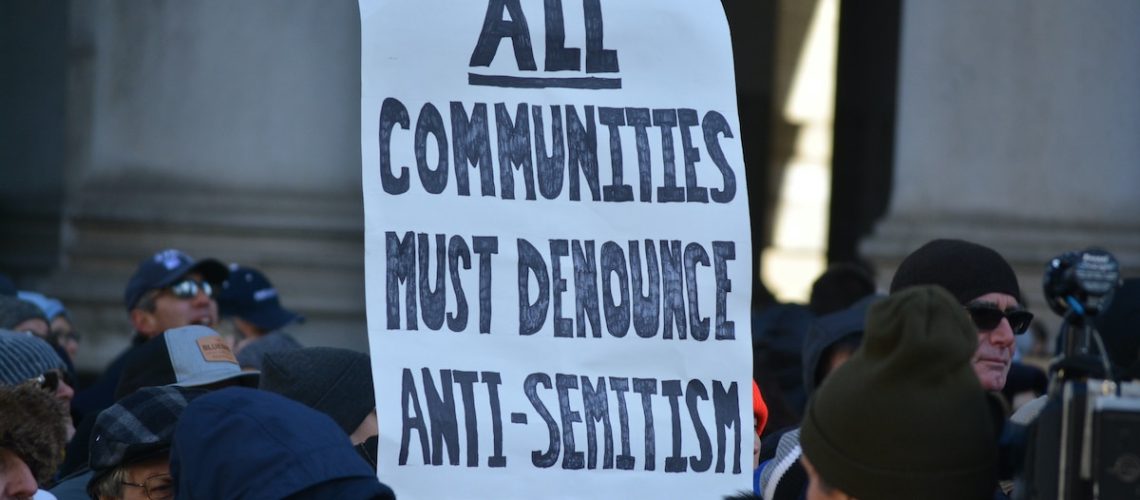The U.S. Department of Justice (DOJ) has been ramping up its efforts to prosecute hate crimes, particularly focusing on racially motivated violence and antisemitic attacks. The increase in racially charged incidents, particularly against Jewish and Black Americans, has led to a surge in DOJ actions, with numerous cases making headlines across the country.
A Surge in Antisemitic Hate Crimes
One of the most alarming trends in recent years has been the rise in antisemitic hate crimes. According to a DOJ report, there has been a sharp increase in antisemitic incidents, which have accounted for more than half of all religion-based hate crimes in the U.S. in the last few years. The Tree of Life synagogue massacre in Pittsburgh in 2018 remains one of the most horrific examples of antisemitic violence, but it’s far from an isolated event.
In one high-profile case from 2024, John Earnest was convicted for a fatal shooting at the Chabad of Poway Synagogue in California. This attack, motivated by antisemitism, resulted in the death of one person and injuries to others. The DOJ has been aggressively pursuing such cases, ensuring that those responsible for these heinous crimes face the full force of the law.
Attorney General William Barr emphasized the gravity of these incidents, stating that antisemitic acts “violate the personal security of individuals, threaten the freedom of communities to pursue their faith and way of life, and disregard the common ties that bind our Nation together”. He further reaffirmed the DOJ’s commitment to combating antisemitism at every level, from state-level prosecutions to high-profile federal cases.
Racially Motivated Attacks
Racially motivated attacks against African Americans have also been on the rise, with several cases leading to significant DOJ interventions. In one particularly notable case, a Florida man was sentenced to prison after attempting to run over six Black men with his truck near the site of the historic Rosewood Massacre. The incident, which took place in September 2022, highlighted the enduring presence of white supremacist ideology in certain areas of the country.
According to court documents, the Florida defendant shouted racial slurs at the men before nearly striking them with his vehicle. He was charged with a hate crime and sentenced to more than a year in prison, marking a victory for both the DOJ and the victims involved. The DOJ’s commitment to prosecuting these crimes has become increasingly evident as they bring more such cases to trial.
In another case from 2023, a Washington man was charged for making violent threats against a Black federal employee at a Social Security office in Olympia. After being told he lacked the correct paperwork for a replacement Social Security card, the defendant used racial slurs and threatened to assault the employee. Such racially motivated threats have been an ongoing focus for federal prosecutors, as they work to hold perpetrators accountable.
DOJ’s Multifaceted Approach
The DOJ has been taking a comprehensive approach to fighting antisemitism and racism, combining criminal prosecutions with broader community-based initiatives. In addition to bringing perpetrators to justice, the DOJ has launched education and outreach programs to help communities identify and report hate crimes. These efforts include training law enforcement officers on recognizing and addressing bias-motivated violence and encouraging closer cooperation between federal and state agencies in investigating such crimes.
“Our work is not just about prosecuting crimes; it’s about building stronger relationships between law enforcement and the communities most affected by hate,” said Kristen Clarke, the Assistant Attorney General for the Civil Rights Division.
One of the most impactful programs has been the United Against Hate initiative, which aims to foster trust between marginalized communities and law enforcement while encouraging victims to report incidents of bias. This initiative has led to a significant increase in the reporting of hate crimes, ensuring that these crimes do not go unnoticed or unpunished.
Looking Forward
As the DOJ continues its fight against hate, it remains focused on addressing both the immediate threat of violence and the underlying causes of racial and religious hatred. Federal prosecutions have sent a strong message that such acts will not be tolerated, and the department’s ongoing efforts to engage with communities affected by hate crimes underscore its commitment to creating a safer, more inclusive society.
The DOJ’s multi-pronged strategy—combining prosecutions with community outreach, training programs, and collaboration with state and local law enforcement—illustrates the complexity of the fight against hate. While antisemitic and racially motivated attacks continue to pose a significant threat, the DOJ’s increasing efforts suggest that the federal government is more determined than ever to combat these dangerous ideologies.

